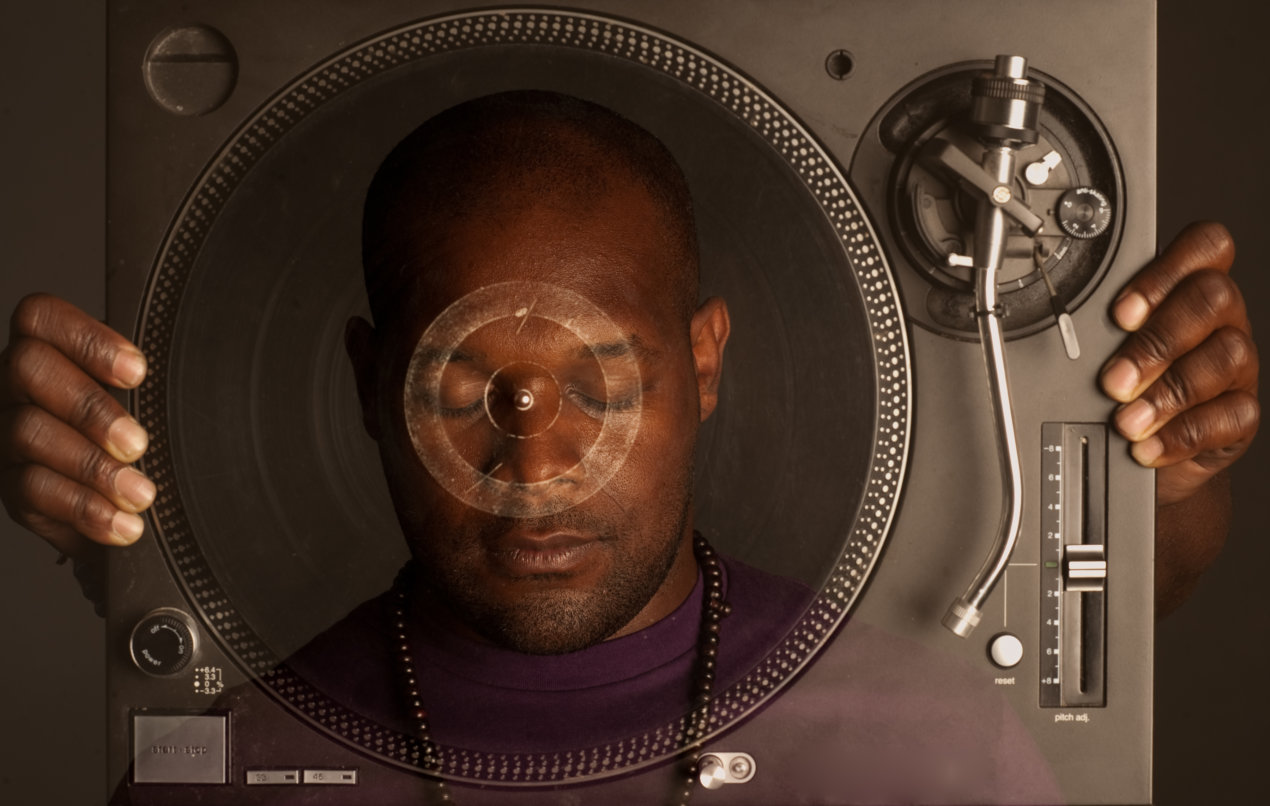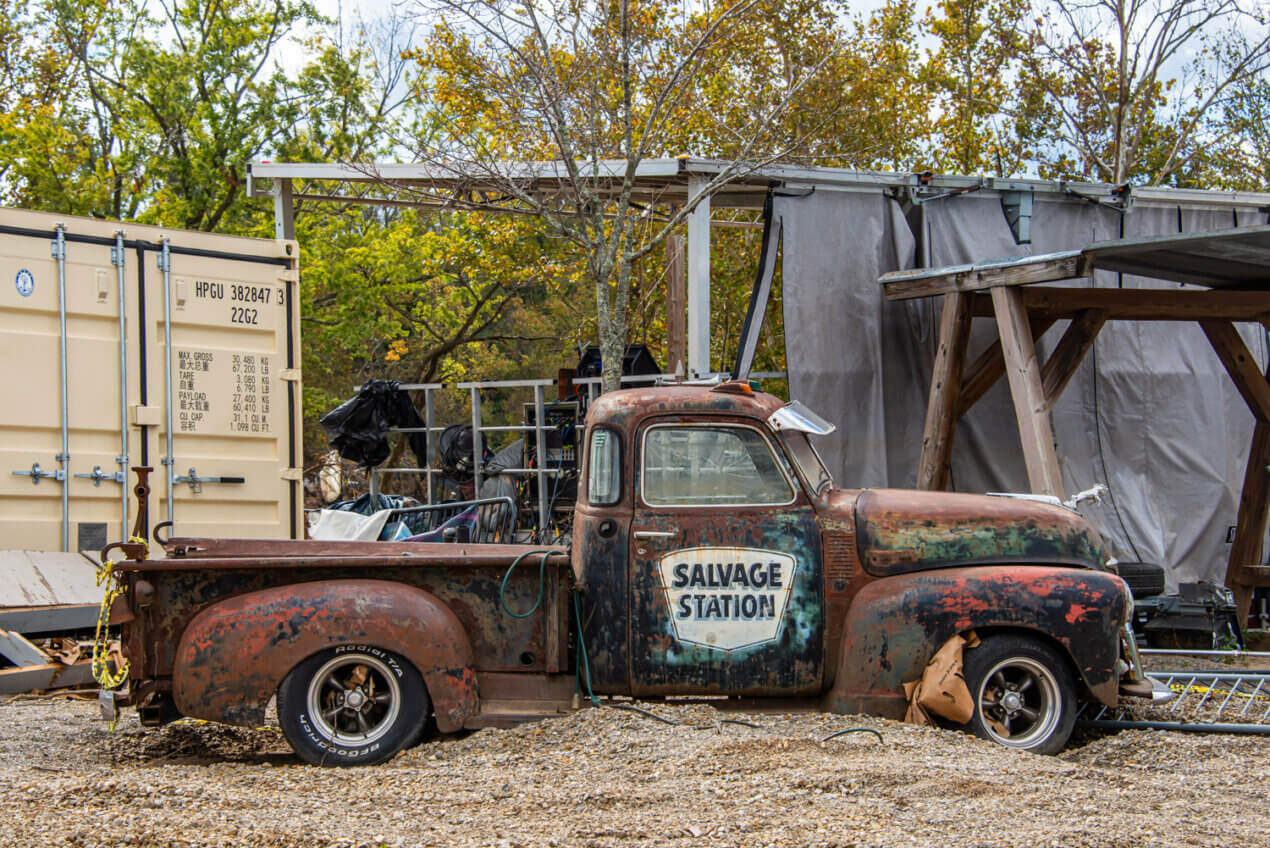
Trombone Shorty & Orleans Avenue – POSTPONED
DJ Logic + Electro Lust will be playing in their place as a separate event --- See our new event post for details!
DOORS: 5:00 PM
STARTS: 6:30 PM
Live on the Outdoor Stage
Genre: Jazz/FunkAge Limit: All Ages are Welcome
Rain or Shine; No Refunds
| We’ve got good news and bad news. Let’s get the bad news out of the way first: Trombone Shorty & Orleans Avenue (originally scheduled for Wednesday, 9/15) has been postponed for reasons beyond our control. Have no fear, though, because the GOOD NEWS is that we’re fully prepared to make the most of the night by having the one and only DJ LOGIC (with special guests Electro Lust) perform LIVE on the Outdoor Stage in their place. It’s gonna be an amazing time, and we hope you’ll join us!
Doors open at 5pm and the music starts at 6:30pm. Bonus: FREE on-site PARKING and Root Down will be serving their delicious twist on Southern Soul food PLUS we will have MULTIPLE full bars open for you to enjoy! If you’re a ticket holder to the Trombone Shorty & Orleans Avenue show, your tickets will be valid for the rescheduled date (which will be announced soon and might also have a bonus involved) OR you can request a refund by emailing info@ticketweb.com by October 15th, 2021. Tickets to the DJ Logic show (with Electro Lust) are $15 and are a separate purchase from the TSOA tickets. You can purchase tickets online at www.salvagestation.com/events OR you can get them at the box office starting at 5PM on Wednesday, September 15th. Thank you all SO MUCH for supporting live music! We look forward to seeing you at the DJ Logic show this Wednesday, September 15th, or at another show sometime very soon! |
Please review our Covid-19 policy here: https://salvagestation.com/covid-policy/
CDC guidelines + band requirements + our own personal policies are changing daily, so please keep your eyes on our website for updates. As always, thank you for supporting live music and for your cooperation as we navigate this challenging time together!
Listen to Trombone Shorty & Orleans Avenue:
About Trombone Shorty & Orleans Avenue:
Trombone Shorty‘s new album opens with a dirge, but if you think the beloved bandleader, singer, songwriter and horn-blower born Troy Andrews came here to mourn, you got it all wrong. That bit of beautiful New Orleans soul—”Laveau Dirge No. 1,” named after one of the city’s most famous voodoo queens—shows off our host’s roots before Parking Lot Symphony branches out wildly, wonderfully, funkily across 12 diverse cuts. True to its title, this album contains multitudes of sound—from brass band blare and deep-groove funk, to bluesy beauty and hip-hop/pop swagger—and plenty of emotion all anchored, of course, by stellar playing and the idea that, even in the toughest of times, as Andrews says, “Music brings unity.”
As for why it’s taken Andrews so long to follow 2013’s Raphael Saadiq-produced Say That to Say This, the man simply says, “I didn’t realize so much time passed. Some artists don’t work until they put a record out but I never stopped going.” Truly. In the last four years, Andrews banked his fifth White House gig; backed Macklemore and Madonna at the Grammys; played on albums by She & Him, Zac Brown, Dierks Bentley, and Mark Ronson; opened tours for Daryl Hall & John Oates and Red Hot Chili Peppers; appeared in Foo Fighters’ Sonic Highways documentary series; voiced the iconic sound of the adult characters in The Peanuts Movie; inherited the esteemed annual fest-closing set at the New Orleans Jazz & Heritage Festival in the tradition of Crescent City greats like the Neville Brothers and Professor Longhair; and released Trombone Shorty, a children’s book about his life that was named a Caldecott Honor Book in 2016.
Adding to that legacy, his Blue Note Records debut Parking Lot Symphony finds Andrews teamed with Grammy-nominated producer Chris Seefried (Andra Day, Fitz and the Tantrums) and an unexpected array of cowriters and players including members of Edward Sharpe & The Magnetic Zeros, The Meters, Better Than Ezra, and Dumpstaphunk. Considering Andrews’ relentless schedule, it’s all the more surprising that this LP began with him in a room, all alone, back in New Orleans.
“I had two weeks at home so I went to the studio and set up the ‘playground,’” he recalls. “I had everything in a circle: tuba, trombone, trumpet, keyboard, Fender Rhodes, Wurly, B3 organ, guitar, bass, drums—and me buried in the middle.” He recorded an album’s worth of ideas and then, well, walked away for a year. Not because he was too busy, but because he wanted to hit the road and see how the music changed on him. When Andrews came back with a full band, the songs came to life.
Take the album’s two covers, a pair of NOLA deep cuts: there’s “Here Comes the Girls,” a 1970 Allen Toussaint song originally recorded by Ernie K-Doe that here (with Ivan Neville on piano) sounds bawdy and regal, like something from a current Bruno Mars album; and The Meters’ lovesick “It Ain’t No Use,” which swirls a vintage R&B vibe with resonant choir vocals and upbeat guitar from The Meters’ Leo Nocentelli himself to transport the listener to the center of the jumpingest jazz-soul concert hall that never was.
The story there is almost too good. The session band—guitarist Pete Murano, sax men Dan Oestreicher and BK Jackson, and drummer Joey Peebles with Dumpstaphunk’s Tony Hall in for Orleans Avenue bassist Mike Bass-Bailey—were in the studio to lay down “It Ain’t No Use.” Hall even had the vintage acoustic he bought from Nocentelli years ago, which was used on the original Meters session. On the way to the bathroom, Andrews saw Nocentelli coming out of a different tracking room: it was meant to be.
But that’s not unusual for a man raised in one of the Tremé’s most musical families. Andrews got his name when he picked up his instrument at four (“My parents pushed me toward trombone because they didn’t need another trumpet player,” he laughs). By eight, he led his own band in parades, halls and even bars: “They’d have to lock the door so the police couldn’t come in.” Promoters would try to hand money to his older cousins, but they’d kindly redirect them to the boy. In his teens, Andrews played shows abroad with the Neville Brothers. Fresh out of high school (New Orleans Center for Creative Arts) he joined Lenny Kravitz’ band.
Across that time, three Trombone Shorty albums and many collaborations since, Andrews nurtured a voracious appetite for all types of music—a phenomenon on fluid display with Parking Lot Symphony. On “Familiar,” co-written by Aloe Blacc, they practically mint a new genre (trap-funk?) while Andrews channels his inner R. Kelly to spit game at an old flame. Meanwhile, the instrumental “Tripped Out Slim” (the nickname of a family friend who recently passed) bends echoes of the Pink Panther theme into something fit for James Brown to strut to. And if you listen closely to “Where It At?,” written with Better Than Ezra’s Kevin Griffin, you may even hear a little Y2K pop. “I know it wasn’t cool to listen to *NSYNC or Britney Spears in high school,” says Andrews, “but those bass lines and melodies are funky.” They pair astonishingly well with all the Earth, Wind & Fire that bubbles beneath these songs.
It’s worth noting that Andrews’ vocals sound better than ever (he credits Seefried for that), because Parking Lot Symphony might be the man’s most heartfelt offering yet. The breezy title track, which Andrews wrote with Alex Ebert (Edward Sharpe & The Magnetic Zeros), is as much about walking the Tremé, being uplifted by the music that seems to seep from every surface, as it is about moving on from a broken heart. And the shuffling, bluesy “No Good Time” reminds us, with a world-weary smile, that “nobody never learned nothin’ from no good time.”
But Andrews is clear that this isn’t some kind of breakup record. “It’s a life record,” he says, “about prevailing no matter what type of roadblock is in front of you.” That message is clearest on “Dirty Water,” where over an easy groove, Andrews adopts a soft falsetto to address just about anyone going through it—personal, political, whatever. “There’s a lot of hope turning to doubt,” he coos. “I’ve got something to say to them / You don’t know what you’re talking about / When you believe in love, it all works out.” Amen. Now let the horns play us out.
About DJ Logic

The theorem of turntablist as musician has been long proven in the capable hands of DJ Logic, whom with jazz as his foundation has become a wax innovator by crossing genres and mixing his sound across the map. As one of the world’s most accomplished turntablists, DJ Logic is widely credited for introducing jazz into the hip–hop realms and is considered by most as a highly-respected session musician and an innovative bandleader.
Since his emergence in the early nineties amidst the Bronx hip-hop scene, the New York City based deejay has been amassing a veritable mountain of collaborations, including a full-fledged band with members of Blues Traveler (The John Popper Project ft. DJ Logic), a trio with Steve Molitz & Freekbass (Headtronics), a jazz project with Georgian prodigy Beka Gochiasvili, and as a member of Grammy-winning Arturo O’Farrill & The Afro Latin Jazz Orchestra’s The Offense of the Drum album. He also has a long list of other collaborations with artists ranging from the likes of Bob Weir, John Mayer, Medeski Martin and Wood, Christian McBride, O.A.R., Carly Simon, Marcus Miller, Jack Johnson, Vernon Reid, Warren Haynes, Charlie Hunter, Jack DeJohnette, Ben Harper, Mos Def, The Roots, Bernie Worrell, Bill Laswell, Melvin Gibbs, Fred Wesley, Sean Kuti and many more.
DJ Logic and his role as an electronic-music ambassador keeps him at the top of his game. Whether the scratch artist instructs tablas to flirt with drum ‘n’ bass (such as on his Nina Simone and Billy Holiday remixes found on Sony Legacy’s Remixed and Reimagined volumes), meshes free styling MC’s with Afro-Cuban rhythms (such as on ‘Share Worldwide Funk’ – a remix produced for Jack DeJohnette and Golden Beams Collected, Volume 1), or remixes tracks for rock bands such as Moon Taxi, DJ Logic can always be found paying homage to his predecessors while contributing his vision to the deejay genre.
While the context of his work may vary, DJ Logic’s spinning skills are definitely beyond reproach. He works with a phenomenal roster of invited guests, and he knows how to pick his collaborators as well as his samples. With a growing catalogue of recordings under his belt, DJ Logic’s supreme musicianship and eclectic tastes will allow him to journey wherever an infectious groove may take him.







